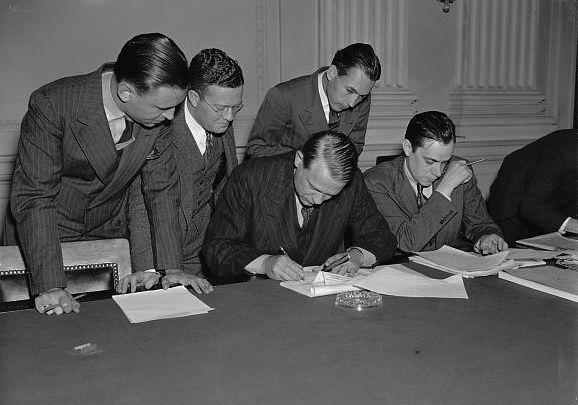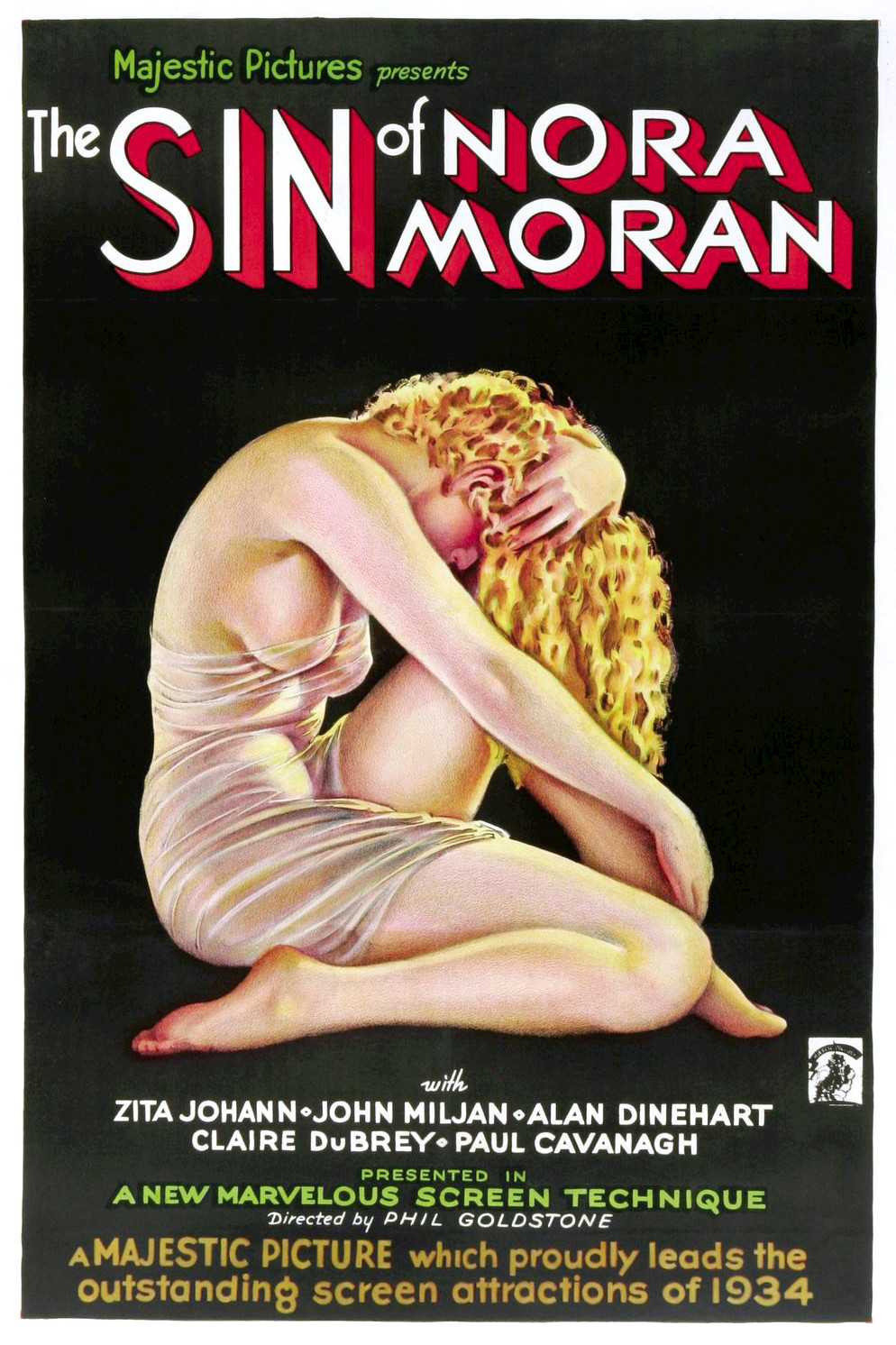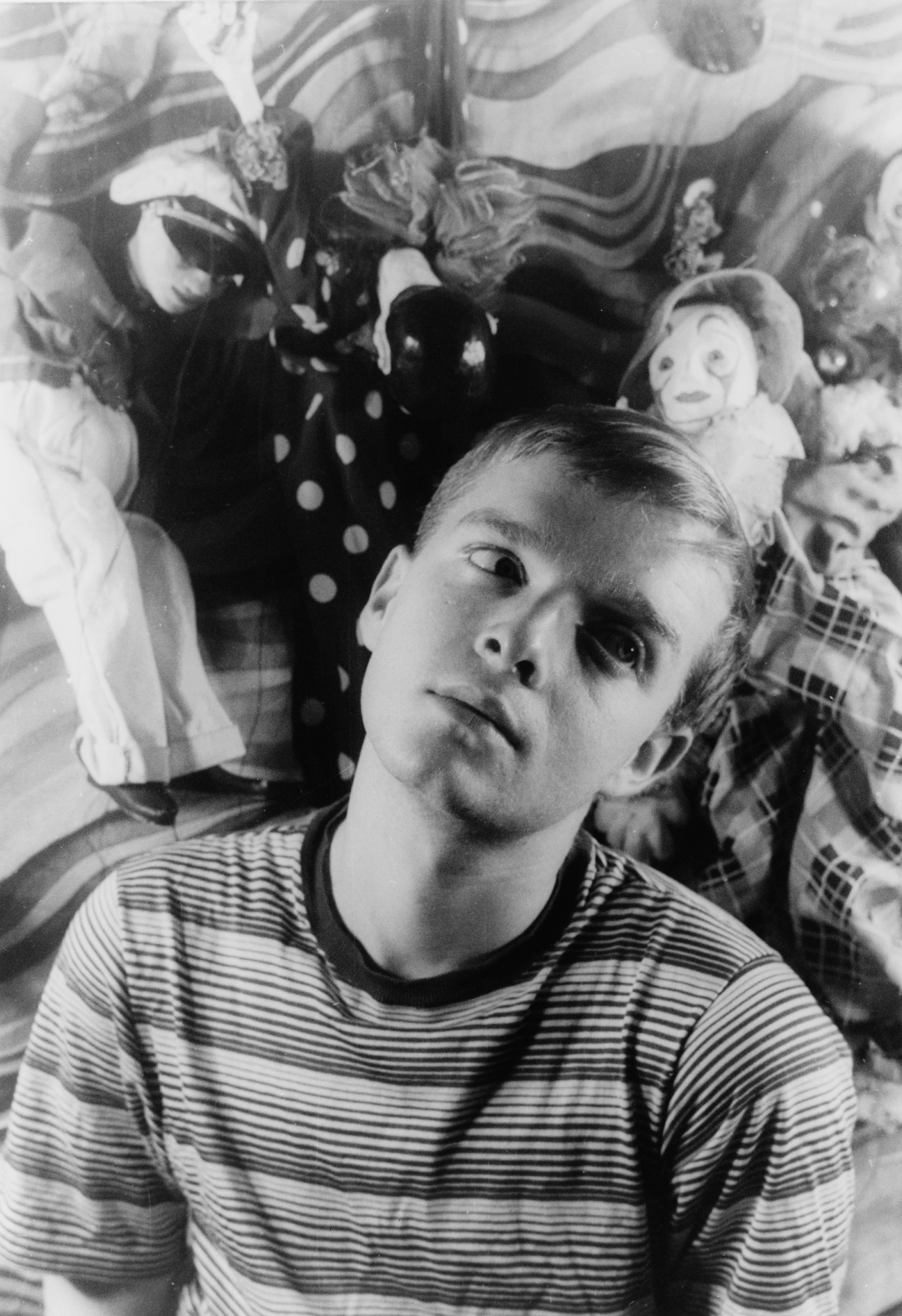|
Arnold Gingrich
Arnold W. Gingrich (December 5, 1903 – July 9, 1976) was the editor of, and, along with publisher David A. Smart and Henry L. Jackson, co-founder of ''Esquire'' magazine. Among his other projects was the political/newsmagazine '' Ken''. Influence Gingrich created ''Esquire'' in 1933 and remained its editor until 1945. He returned as publisher in 1952, serving in this role until his death in 1976. For several years he left the post of editor vacant while several young editors competed for it. The two most serious contenders were Harold Hayes and Clay Felker. Hayes won, and Felker went on to found '' New York'' magazine. During the Hayes–Gingrich era, ''Esquire'' played a leading role in launching the New Journalism, publishing writers including Tom Wolfe and fellow fraternity brother Gay Talese. Biography Gingrich was born in Grand Rapids, Michigan, of Mennonite parents in 1903. He attended the University of Michigan where he was a member of Phi Sigma Kappa fraternity, a ... [...More Info...] [...Related Items...] OR: [Wikipedia] [Google] [Baidu] |
House Un-American Activities Committee
The House Committee on Un-American Activities (HCUA), popularly the House Un-American Activities Committee (HUAC), was an investigative United States Congressional committee, committee of the United States House of Representatives, created in 1938 to investigate alleged disloyalty and subversive activities on the part of private citizens, public employees, and those organizations suspected of having Communism, communist ties. It became a standing (permanent) committee in 1946, and from 1969 onwards it was known as the House Committee on Internal Security. When the House abolished the committee in 1975, its functions were transferred to the United States House Committee on the Judiciary, House Judiciary Committee. The committee's anti-communist investigations are often associated with McCarthyism, although Joseph McCarthy himself (as a U.S. Senator) had no direct involvement with the House committee. McCarthy was the chairman of the United States Senate Committee on Homeland Secur ... [...More Info...] [...Related Items...] OR: [Wikipedia] [Google] [Baidu] |
Phi Sigma Kappa
Phi Sigma Kappa (), colloquially known as Phi Sig or PSK, is a men's social and academic Fraternities and sororities, fraternity with approximately 74 List of Phi Sigma Kappa chapters#Chapters, active chapters and provisional chapters in North America. Most of its first two dozen chapters were granted to schools in New England, New York, and Pennsylvania; therefore its early development was strongly Eastern in character, eventually operating chapters at six of the eight Ivy League schools as well as more egalitarian state schools. It later expanded to the South and West. The fraternity has initiated more than 180,000 members since 1873. According to its Constitution, Phi Sigma Kappa is devoted to the promotion of its three Cardinal Principles: the "Promotion of Brotherhood", the "Stimulation of Scholarship", and the "Development of Character". Phi Sigma Kappa began on March 15, 1873, at Massachusetts Agricultural College in Amherst, Massachusetts, Amherst (now the University of M ... [...More Info...] [...Related Items...] OR: [Wikipedia] [Google] [Baidu] |
Alberto Vargas
Joaquin Alberto Vargas y Chávez (9 February 1896 – 30 December 1982) was a Peruvian-American painter of pin-up girls. He is often considered one of the most famous of the pin-up artists, and as one of the pioneers of airbrush art. Numerous Vargas paintings have sold and continue to sell for tens of thousands around the world. Life and career Born in Arequipa, Peru, he was the son of noted Peruvian photographer Max T. Vargas. Alberto Vargas moved to the United States in 1916 after studying art in Europe, particularly in Zurich and Geneva, prior to World War I. While he was in Europe he came upon the French magazine '' La Vie Parisienne,'' with a cover by Raphael Kirchner, which he said was a great influence on his work. His early career in New York included work as an artist for the Ziegfeld Follies and for many Hollywood studios. Ziegfeld hung his painting of Olive Thomas at the theater, and she was thought of as one of the earliest Vargas Girls. Vargas' most famous pi ... [...More Info...] [...Related Items...] OR: [Wikipedia] [Google] [Baidu] |
Playboy
''Playboy'' (stylized in all caps) is an American men's Lifestyle journalism, lifestyle and entertainment magazine, available both online and in print. It was founded in Chicago in 1953 by Hugh Hefner and his associates, funded in part by a $1,000 loan from Hefner's mother. Known for its centerfolds of nude and semi-nude models (Playboy Playmate, Playmates), ''Playboy'' played an important role in the sexual revolution and remains one of the world's best-known brands, with a presence in nearly every medium. In addition to the flagship magazine in the United States, special #International editions, nation-specific versions of ''Playboy'' are published worldwide, including those by licensees, such as Dirk Steenekamp's DHS Media Group. The magazine has a long history of publishing short stories by novelists such as Arthur C. Clarke, Ian Fleming, Vladimir Nabokov, Saul Bellow, Chuck Palahniuk, P. G. Wodehouse, Roald Dahl, Haruki Murakami, and Margaret Atwood. With a regular displ ... [...More Info...] [...Related Items...] OR: [Wikipedia] [Google] [Baidu] |
Robert Klark Graham
Robert Klark Graham (June 9, 1906 – February 13, 1997) was an American eugenicist and businessman who made millions by developing shatterproof plastic eyeglass lenses and who later founded the Repository for Germinal Choice, a sperm bank for geniuses, in the hope of implementing a eugenics program. Graham created his "Nobel sperm bank" in 1980. Initially, his intent was to obtain sperm only from Nobel laureates, but the scarcity of donors and the low viability of their sperm (because of age) forced Graham to develop a looser set of criteria. These criteria were numerous and exacting: for example, sperm recipients were required to be married and to have extremely high IQ, though the bank later relaxed this policy so it could recruit athletes for donors as well as scholars. By 1983, Graham's sperm bank was reputed to have 19 genius repeat donors, including William Bradford Shockley (recipient of the 1956 Nobel Prize in Physics and proponent of eugenics) and two anonymous No ... [...More Info...] [...Related Items...] OR: [Wikipedia] [Google] [Baidu] |
Trial And Error (Woodford Book)
''Trial and Error'' is Jack Woodford's book on writing and the publishing industry. The book focuses on writing and editing and describes the behind-the-scenes machinations that result in the final publication of writing. The book was instrumental in the writing careers of Ray Bradbury, Robert A. Heinlein, Jerry Pournelle, Piers Anthony, and Richard A. Lupoff. The Notebooks of Raymond Chandler contain a paraphrased excerpt from ''Trial and Error'' that Raymond Chandler, Chandler wrote from memory, entitled "Jack Woodford's Rules for Writing a Novel." The introduction was written by the founder of ''Esquire (magazine), Esquire'' magazine Arnold Gingrich. References [...More Info...] [...Related Items...] OR: [Wikipedia] [Google] [Baidu] |
Jack Woodford
Jack Woodford (1894–1971) was an American novelist and non-fiction writer, author of successful pulp novels and non-fiction, including books on writing and getting published. Most famously, Woodford authored ''Trial and Error'', which caused something of a scandal at the time of publication because of its no-holds-barred insights into the publishing industry. Born Josiah Pitts Woolfolk, he also wrote under the name Jack Woolfolk. The pen name "Jack Woodford" was derived from the first name of a writer he admired (Jack Lait, a writer for Hearst Publications) and the county where his father was born (Woodford County, Kentucky). Other pen names include Gordon Sayre, Sappho Henderson Britt, and Howard Hogue Kennedy. Life Woodford grew up in Chicago when the dominant form of transportation was horse-drawn carriage. He was raised in well-to-do circumstances by his grandmother Annette (of Welsh stock) whom he called "Nettie". Nettie was a practicing member of Christian Science ... [...More Info...] [...Related Items...] OR: [Wikipedia] [Google] [Baidu] |
The Pat Hobby Stories
''The Pat Hobby Stories'' is a collection of short stories by American writer F. Scott Fitzgerald. The 17 stories were originally published by Arnold Gingrich of ''Esquire'' magazine between January 1940 and May 1941, and later collected in one volume in 1962. The last five installments of ''The Pat Hobby Stories'' were published in ''Esquire'' after Fitzgerald's death in December 1940. Pat Hobby, the protagonist in the stories, is a down-and-out screenwriter in Hollywood, once successful as "a good man for structure" during the silent age of cinema, but now reduced to an alcoholic hack hanging around the studio lot. Most stories find him broke and engaged in some ploy for money or a much-desired screen credit, but his antics usually backfire and end in further humiliation. Drawing on his own experiences as a writer in Hollywood, Fitzgerald portrays Pat Hobby with self-deprecating humor and nostalgia. In an introduction to ''The Pat Hobby Stories'', editor Arnold Gingrich not ... [...More Info...] [...Related Items...] OR: [Wikipedia] [Google] [Baidu] |
Norman Mailer
Nachem Malech Mailer (January 31, 1923 – November 10, 2007), known by his pen name Norman Kingsley Mailer, was an American writer, journalist and filmmaker. In a career spanning more than six decades, Mailer had 11 best-selling books, at least one in each of the seven decades after World War II. His novel ''The Naked and the Dead'' was published in 1948 and brought him early renown. His 1968 nonfiction novel ''The Armies of the Night'' won the Pulitzer Prize for nonfiction as well as the National Book Award. Among his other well-known works are ''An American Dream (novel), An American Dream'' (1965), ''The Fight (book), The Fight'' (1975) and ''The Executioner's Song'' (1979), which won the Pulitzer Prize for fiction. Mailer is considered an innovator of "creative nonfiction" or "New Journalism", along with Gay Talese, Truman Capote, Hunter S. Thompson, Joan Didion and Tom Wolfe, a genre that uses the style and devices of literary fiction in factual journalism. He was a promin ... [...More Info...] [...Related Items...] OR: [Wikipedia] [Google] [Baidu] |
Truman Capote
Truman Garcia Capote ( ; born Truman Streckfus Persons; September 30, 1924 – August 25, 1984) was an American novelist, screenwriter, playwright, and actor. Several of his short stories, novels, and plays have been praised as literary classics, and he is regarded as one of the founders of New Journalism, along with Gay Talese, Hunter S. Thompson, Norman Mailer, Joan Didion, and Tom Wolfe. His work and his life story have been adapted into and have been the subject of more than 20 films and television productions. Capote had a troubled childhood caused by his parents' divorce, a long absence from his mother, and multiple moves. He was planning to become a writer by the time he was eight years old, and he honed his writing ability throughout his childhood. He began his professional career writing short stories. The critical success of "Miriam (short story), Miriam" (1945) attracted the attention of Random House publisher Bennett Cerf and resulted in a contract to write the novel ... [...More Info...] [...Related Items...] OR: [Wikipedia] [Google] [Baidu] |
Garry Wills
Garry Wills (born May 22, 1934) is an American author, journalist, political philosopher, and historian, specializing in American history, politics, and religion, especially the history of the Catholic Church. He won a Pulitzer Prize for General Nonfiction in 1993. Wills has written over fifty books and, since 1973, has been a frequent reviewer for ''The New York Review of Books''. He became a faculty member of the history department at Northwestern University in 1980, where he is an Emeritus Professor of History. Early years Wills was born on May 22, 1934, in Atlanta, Georgia.Library of AmericBiography of Garry Wills. His father, Jack Wills, was from a Protestant background, and his mother was from an Irish Catholic family. He was reared as Catholic and grew up in Michigan and Wisconsin, graduating in 1951 from Campion High School, a Jesuit institution in Prairie du Chien, Wisconsin. He entered and then left the Society of Jesus. Wills earned a Bachelor of Arts degree fro ... [...More Info...] [...Related Items...] OR: [Wikipedia] [Google] [Baidu] |
John Dos Passos
John Roderigo Dos Passos (; January 14, 1896 – September 28, 1970) was an American novelist, most notable for his U.S.A. (trilogy), ''U.S.A.'' trilogy. Born in Chicago, Dos Passos graduated from Harvard College in 1916. He traveled widely as a young man, visiting Europe and southwest Asia, where he learned about literature, art, and architecture. During World War I, he was an ambulance driver for the American Volunteer Motor Ambulance Corps in Paris and Italy, before joining the United States Army Medical Corps as a private. In 1920, his first novel, ''One Man's Initiation: 1917'', was published, and in 1925, his novel ''Manhattan Transfer (novel), Manhattan Transfer'' became a commercial success. His U.S.A. (trilogy), ''U.S.A.'' trilogy, which consists of the novels ''The 42nd Parallel'' (1930), ''1919'' (1932), and ''The Big Money'' (1936), was ranked by the Modern Library in 1998 as 23rd of the Modern Library 100 Best Novels, 100 best English-language novels of the 20th cent ... [...More Info...] [...Related Items...] OR: [Wikipedia] [Google] [Baidu] |





